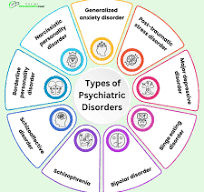The Importance of Protecting Our Environment
Our environment is a precious resource that sustains all life on Earth. From the air we breathe to the water we drink, every aspect of our well-being is interconnected with the health of our planet. It is crucial that we recognize the significance of protecting and preserving our environment for current and future generations.
One of the most pressing environmental issues we face today is climate change. The burning of fossil fuels, deforestation, and industrial activities have led to an increase in greenhouse gas emissions, resulting in global warming and unpredictable weather patterns. The consequences of climate change are far-reaching, affecting ecosystems, biodiversity, food security, and human health.
In addition to climate change, pollution poses a significant threat to our environment. Plastic waste clogs our oceans and harms marine life, while air pollution contributes to respiratory diseases and threatens public health. It is essential that we take action to reduce pollution levels and adopt sustainable practices to protect our environment.
Conservation efforts play a crucial role in safeguarding our natural resources. By preserving forests, wetlands, and wildlife habitats, we can maintain biodiversity and ensure the resilience of ecosystems against environmental threats. Sustainable agriculture practices and responsible water management are also essential for maintaining a healthy environment.
Individual actions can make a difference in protecting the environment. Simple steps such as reducing waste, recycling materials, conserving energy, and supporting eco-friendly products can contribute to a more sustainable future. Education and awareness are key in promoting environmental stewardship among communities and inspiring collective action.
As stewards of the Earth, it is our responsibility to care for the environment and mitigate the impact of human activities on nature. By working together to address environmental challenges, we can create a healthier planet for ourselves and future generations to enjoy.
Top 6 Environmental Benefits: Protecting Our Planet and Future
- Preserving biodiversity and protecting endangered species.
- Reducing pollution levels for cleaner air and water.
- Conserving natural resources for future generations.
- Mitigating climate change effects through sustainable practices.
- Creating green jobs and promoting a thriving green economy.
- Enhancing quality of life by fostering a healthy environment.
Seven Environmental Challenges Impacting Our Planet
- Deforestation leads to habitat loss for wildlife.
- Air pollution contributes to respiratory diseases and climate change.
- Water pollution harms aquatic ecosystems and threatens marine life.
- Plastic waste contaminates oceans and endangers marine species.
- Industrial activities release harmful chemicals into the environment.
- Climate change disrupts weather patterns, leading to natural disasters.
- Overfishing depletes ocean resources and disrupts marine ecosystems.
Preserving biodiversity and protecting endangered species.
Preserving biodiversity and protecting endangered species is crucial for maintaining the delicate balance of ecosystems and ensuring the resilience of our planet’s natural habitats. Each species plays a unique role in the ecosystem, contributing to its stability and functionality. By safeguarding biodiversity and preventing the extinction of endangered species, we can protect the richness of life on Earth, promote genetic diversity, and support ecological processes that benefit all living organisms. Conservation efforts aimed at preserving biodiversity not only benefit wildlife but also have far-reaching positive impacts on human well-being, including providing essential ecosystem services such as clean air, fresh water, and fertile soil. It is imperative that we prioritize the protection of biodiversity and endangered species to secure a sustainable future for all life on our planet.
Reducing pollution levels for cleaner air and water.
Reducing pollution levels is a critical step in safeguarding our environment and promoting human health. By minimizing air and water pollution, we can ensure cleaner and healthier ecosystems for all living beings. Cleaner air means reduced respiratory illnesses and improved overall well-being for communities, while cleaner water sources support biodiversity and sustainable water supplies. Taking action to lower pollution levels not only benefits the environment but also enhances the quality of life for present and future generations.
Conserving natural resources for future generations.
Conserving natural resources for future generations is a crucial pro of environmental protection. By responsibly managing and preserving resources such as clean water, fertile soil, forests, and minerals, we ensure that these essential elements will be available for the well-being and prosperity of our descendants. Sustainable practices today not only safeguard the environment but also guarantee that future generations will have access to the same resources that support life on Earth. It is our duty to act as responsible stewards of the planet, ensuring that we leave a legacy of sustainability and abundance for those who come after us.
Mitigating climate change effects through sustainable practices.
Mitigating the effects of climate change through sustainable practices is crucial for preserving our planet’s health and ensuring a sustainable future for generations to come. By reducing greenhouse gas emissions, promoting renewable energy sources, and implementing eco-friendly practices in industries and daily life, we can help combat global warming and its detrimental impacts on ecosystems, biodiversity, and human well-being. Embracing sustainability not only helps protect the environment but also fosters resilience against climate change challenges, creating a more balanced and harmonious relationship between humanity and nature.
Creating green jobs and promoting a thriving green economy.
Promoting a thriving green economy and creating green jobs is a significant benefit of prioritizing environmental conservation efforts. By investing in renewable energy sources, sustainable agriculture, eco-friendly technologies, and green infrastructure, we not only reduce our carbon footprint but also stimulate economic growth and job creation. Green jobs provide opportunities for individuals to contribute to environmental sustainability while supporting industries that prioritize resource efficiency and environmental stewardship. A thriving green economy not only enhances the health of our planet but also fosters innovation, resilience, and prosperity for communities worldwide.
Enhancing quality of life by fostering a healthy environment.
Fostering a healthy environment plays a vital role in enhancing the quality of life for individuals and communities. When we prioritize environmental health by preserving clean air, water, and natural spaces, we create a foundation for overall well-being. A healthy environment promotes physical health by reducing exposure to pollutants and toxins, leading to lower rates of respiratory illnesses and other health conditions. Additionally, green spaces and access to nature have been shown to improve mental health, reduce stress levels, and enhance overall happiness and quality of life. By nurturing a healthy environment, we not only benefit ourselves but also create a sustainable legacy for future generations to enjoy a thriving planet.
Deforestation leads to habitat loss for wildlife.
Deforestation, a consequence of human activities such as agriculture, logging, and urbanization, results in significant habitat loss for wildlife around the world. As forests are cleared to make way for development or resource extraction, countless species of plants and animals lose their homes and sources of food. This disruption to natural habitats can lead to population declines, extinction risks, and disruptions in ecosystems that rely on diverse flora and fauna. Protecting forests and promoting sustainable land use practices are essential to safeguarding the rich biodiversity that depends on these vital ecosystems for survival.
Air pollution contributes to respiratory diseases and climate change.
Air pollution is a significant environmental con that not only impacts human health but also contributes to the ongoing issue of climate change. The release of harmful pollutants into the atmosphere from various sources such as vehicle emissions, industrial activities, and burning fossil fuels leads to poor air quality. This pollution not only poses a direct threat to respiratory health, causing diseases like asthma and lung cancer, but it also plays a role in exacerbating climate change by increasing greenhouse gas levels in the atmosphere. Addressing air pollution is crucial for safeguarding public health and mitigating the effects of climate change on a global scale.
Water pollution harms aquatic ecosystems and threatens marine life.
Water pollution poses a significant threat to aquatic ecosystems and marine life. Contaminants such as chemicals, plastics, and waste runoff disrupt the delicate balance of underwater habitats, leading to harmful effects on marine organisms. From coral reefs to fish populations, water pollution can cause widespread damage, affecting biodiversity and the overall health of our oceans. It is crucial to address this con of environmental degradation through sustainable practices and concerted efforts to reduce pollution levels in our waterways.
Plastic waste contaminates oceans and endangers marine species.
Plastic waste poses a significant threat to our oceans and marine life. The improper disposal of plastic products leads to widespread contamination of marine ecosystems, endangering the health and survival of various species. Marine animals often mistake plastic debris for food, ingesting harmful materials that can cause internal injuries, starvation, and even death. Additionally, plastic waste can entangle marine creatures such as turtles, seabirds, and seals, leading to physical harm and restricting their movement. The accumulation of plastic pollution not only disrupts marine habitats but also has long-lasting negative effects on the entire ocean ecosystem. It is crucial to address this environmental con by reducing plastic use, improving waste management practices, and promoting sustainable solutions to protect our oceans and the diverse species that call them home.
Industrial activities release harmful chemicals into the environment.
Industrial activities release harmful chemicals into the environment, posing a significant threat to ecosystems and human health. The discharge of pollutants such as heavy metals, toxic gases, and hazardous waste from industrial processes contaminates air, water, and soil, leading to environmental degradation and ecosystem disruption. These chemicals can accumulate in the food chain, causing long-term health risks for both wildlife and humans. Additionally, industrial pollution contributes to air quality issues, water contamination, and soil infertility, impacting biodiversity and natural habitats. It is essential for industries to adopt sustainable practices and stringent regulations to minimize their environmental impact and protect the well-being of our planet.
Climate change disrupts weather patterns, leading to natural disasters.
Climate change, with its disruptive effects on weather patterns, poses a significant con for the environment as it leads to an increase in natural disasters. The rise in global temperatures intensifies storms, droughts, floods, and wildfires, resulting in devastating consequences for communities and ecosystems worldwide. These extreme weather events not only cause immediate destruction but also have long-term impacts on infrastructure, agriculture, and public health. Addressing climate change and its associated risks is crucial to mitigating the frequency and severity of natural disasters and safeguarding the well-being of both humans and the environment.
Overfishing depletes ocean resources and disrupts marine ecosystems.
Overfishing poses a significant threat to the environment as it depletes ocean resources and disrupts marine ecosystems. The practice of harvesting fish at a rate faster than they can reproduce not only leads to the decline of fish populations but also disturbs the delicate balance of marine ecosystems. As key species are overexploited, it can have cascading effects on other marine organisms, leading to imbalances in food chains and ecosystem functions. Overfishing not only jeopardizes the sustainability of fisheries but also impacts the overall health and biodiversity of our oceans, highlighting the urgent need for responsible fishing practices and effective conservation measures to protect our marine resources for future generations.



